No phone. No roads. No problem. When Jack Schafer graduates from Michigan Technological University in December, he knows exactly where he's headed — back to Isle Royale to be part of the Tech-led 66-year-old study of wolves and moose.
Schafer, who majors in ecology and evolutionary biology, plans to spend seven weeks on Isle Royale as a member of the 2025 winter study team. He feels both fortunate and eager to be part of the expedition. "I'm getting a lot of island time — island time that not a lot of other people get to do. It's a whole other aspect of the research," he said.
Isle Royale National Park is located in Lake Superior, 56 miles from Michigan's mainland and 18 miles from the Minnesota shore. The park is closed to visitors during the winter, but it's a crucial time for the long-running wolf-moose project.
"This winter, Jack will be following moose tracks in the snow until he finds places where the tracks suggest that moose have bedded down for a rest or stopped to forage on trees," said Sarah Hoy, wolf-moose project co-leader. She said Schafer will be collecting samples and data to help researchers understand what plants the moose are eating, the quality of the food they're consuming, and clues to how the health of the moose population is changing over time.
Navigating by skis and snowshoes will be new to Schafer, but the island itself is becoming a familiar environment.
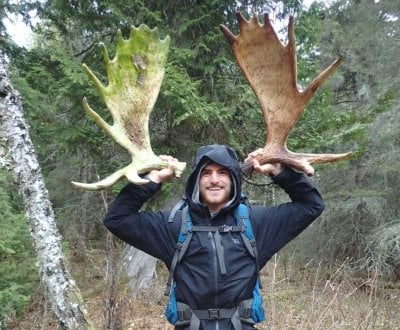
It will be Schafer's third time conducting research on Isle Royale. In early summer of 2023, he was part of a team of Michigan Tech students who collected data on balsam fir browsing. Balsam firs are the moose population's favorite food. Researchers are studying how moose consumption of balsam fir and other environmental factors are affecting the tree species.
"The first time I went out there, I fell in love with the island. It's a sense of calm and deeper connection with nature," he said.
In summer 2024, Schafer returned to Isle Royale to lead citizen scientists from all walks of life on Moosewatch Expeditions. Moosewatch volunteers survey and catalog the moose bones that assist in the meticulous documentation of the island's moose population.
During his first visit, Schafer discovered that he isn't daunted by isolation from the mainland or lack of cell phone reception. "I really enjoy the disconnect," he said. "I'm fine with not being online."
Schafer was excited when winter study co-leader Rolf Peterson, who brought the wolf-moose project to Michigan Tech nearly five decades ago, invited him to lead a Moosewatch Expedition.
"Rolf sent an email after the internship experience asking about helping out and leading a Moosewatch — I ended up participating in more than one," Schafer said.
"Rolf is my idol, an amazing mentor. The more time that I can be around the people involved in this project and learn from them, and the more people I meet in the field, the better off I'm going to be."
Leading Moosewatch Expeditions
Schafer said a broad mix of people take part in the eight-day Moosewatch trips. "Everything from experienced backpackers to more science-focused folks — there's a great diversity," he said. But whether a participant happens to be a psychologist or a department of natural resources official, he said most seem to share a common purpose. "You're contributing to something more than just being on the island," Schafer said.
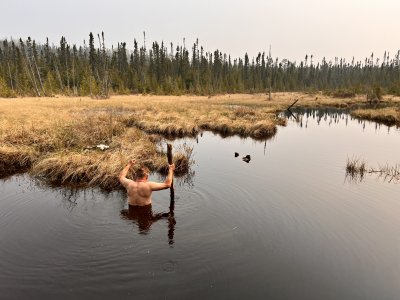
Before he could lead, Schafer underwent training as a team member with an experienced Moosewatch leader. He was thoroughly briefed on the necessary safety and documentation requirements, as well as the anatomy of a moose.
That aspect of preparation came easy. But there were other obstacles to surmount. Leading a group of people through a roadless wilderness is no game, said Schafer. "My first time on the island, I was an intern just going to GPS points and doing the work in our designated plot. But when you're doing Moosewatch, you have to make decisions about how to navigate through your area. Your group is reliant on you for safety and for being able to get them where they need to go."
Beyond the mechanics of safe navigation was a bigger test of Schafer's own sense of inner confidence and security. "That was kind of a hard part, trusting myself," he said.
Before Moosewatch, Schafer's most recent leadership experience was as captain of his high school football team in South Lyon, Michigan. He said that doesn't really compare to what was asked of him in his Moosewatch role.
"The leadership piece was the most challenging aspect of the experience — being able to view myself as a capable leader. Wondering 'Do they think I'm doing a good job?' and working to project confidence and comfort without being a know-it-all. I had to look at the strengths they have and the strengths I have," said Schafer. "And I had to be open about not always being right about everything."
"It was a good experience. It was hard but very necessary for me to understand myself in how I act as a leader in a group."
Schafer set the daily schedule based on how the six-member group was feeling that day, factoring in how long it might take to find a site to set up camp and how far the group would have to hike back to the camp after they surveyed their designated area.
During one expedition, Schafer left a field kit behind at camp that was needed for the day's work. It was too far away to retrieve — they'd miss the day's research. His first impulse, as he braced for critical comments, was to be tough on himself. But then his solution-focused mindset kicked in. With the help of the group, he improvised a kit with the supplies on hand so they could continue their work.
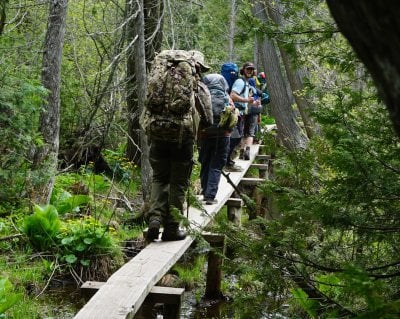
Schafer's takeaway is that moments of imperfection build both confidence and character. "It's not making a mistake that's an issue, it's how you handle it — that's the thing," he said.
Along with the tougher lessons in leadership came plenty of joy. Schafer said it was interesting to see how people related to each other. "Their phones don't work, so they have to talk to each other. It forces people to have more human interaction," he said.
Beyond the Bones: Isle Royale Observations
Moosewatch Expedition team members collected more than bones during their time on the island — they also took in memorable historical sites, the natural landscape and the many residents who share the island with the moose and wolves. While there were reports of wolves seen near campground areas this summer, Schafer said Moosewatch participants heard calls, but didn't see any of the predators; they were vigilant about safely storing their food. Spotting the Isle Royale wolves, whose population was most recently estimated at 30, is more likely in winter, when ground cover is minimal and researchers conduct aerial surveys, he added.
Schafer's group did spot snowshoe hares, eagles, moose (of course!) and gray jays. He fears the latter are declining, as he didn't see as many this trip compared to when he was on the island during the same time in 2023.
Here are a few Moosewatch memories captured by Schafer:
Schafer's favorite part of Moosewatch was the jubilee at the end of each expedition, when multiple teams who have been tent-camping in the backcountry for a week return from the field to dine together.
He loved hearing the stories of their finds and adventures, along with the general "camp feeling" — complete with singalongs.
"It's a bonding experience," Schafer said. "Like adult summer camp for the people who return every year." He was grateful for the experienced folks, including Bob Bollinger, the leader who taught him the Moosewatch ropes. "He has so much experience and so much knowledge. They all taught me so much."
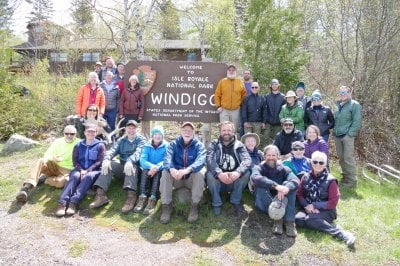
Peterson said he knew that Schafer would do an excellent job. "Jack is highly motivated to learn about the natural world and to lead others in that quest," he said. "He quickly earned the trust and respect of volunteers. They know he will get them through 'the swamp.'"
Hoy, who has also been closely watching Schafer's progress, heard others on his team speak highly of his work. "Several of his team members came up to me to tell me what a great person and leader he was, and that they were glad to be in his group," she said.
She is glad to have Schafer join the winter phase of the project.
"It has really been a privilege to get to work with Jack these past few years, and he has become a really valuable part of the wolf-moose research team — both in the lab and out on Isle Royale," she said. "No matter what the task or how challenging it may initially appear, he always exceeds all our expectations and seems capable of anything."
Schafer's Isle Royale experiences have expanded his awareness of career possibilities. One of the Moosewatch volunteers is involved in the science programs offered on Viking cruise ships. He also met researchers working on herpetological projects and spent time with other natural resources professionals in roles he didn't know existed.
"I'm feeling like there's a lot I could do with my degree," he said. "I'm finding so many opportunities that narrowing it down will have to come later. I'm going broad now, and exploring. I want to do a little bit of everything before I decide."
For now, the island is calling.
"I'm willing to take that jump," said Schafer. "It's a really good jump to take."
Michigan Technological University is an R1 public research university founded in 1885 in Houghton, and is home to nearly 7,500 students from more than 60 countries around the world. Consistently ranked among the best universities in the country for return on investment, Michigan's flagship technological university offers more than 185 undergraduate and graduate degree programs in science and technology, engineering, computing, forestry, business, health professions, humanities, mathematics, social sciences, and the arts. The rural campus is situated just miles from Lake Superior in Michigan's Upper Peninsula, offering year-round opportunities for outdoor adventure.

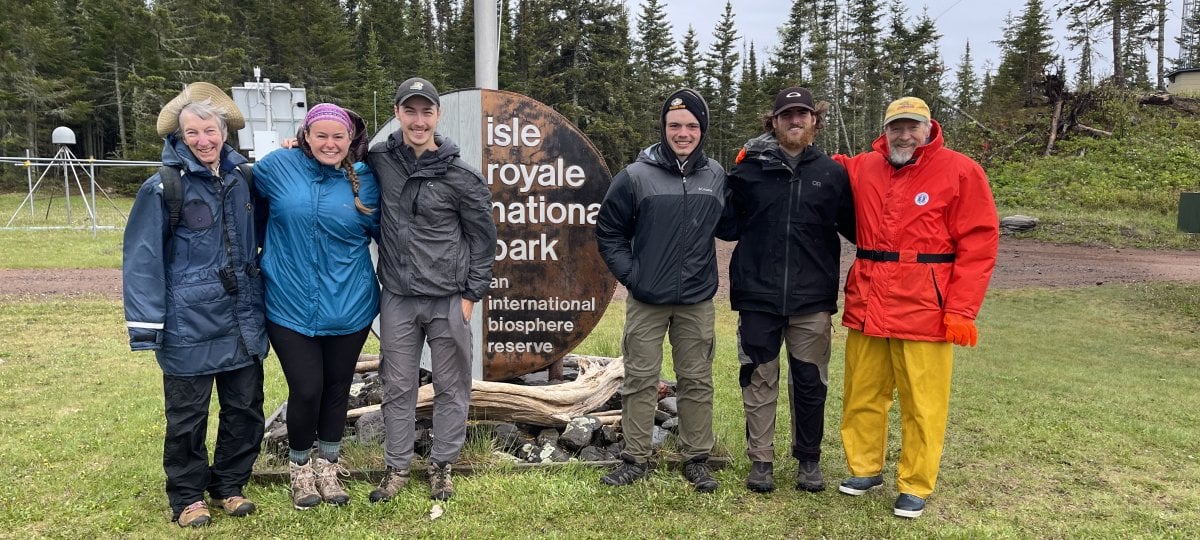
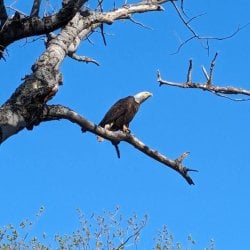

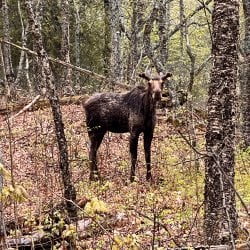

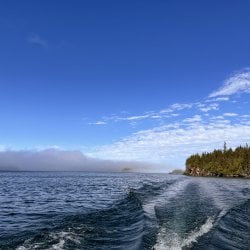
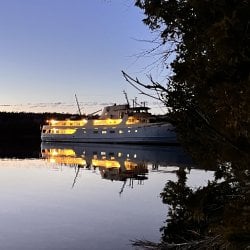
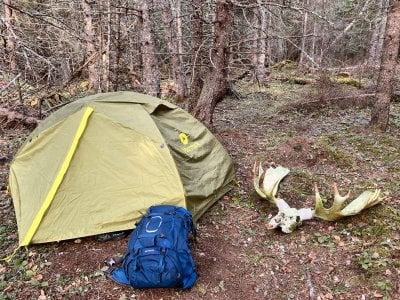




Comments